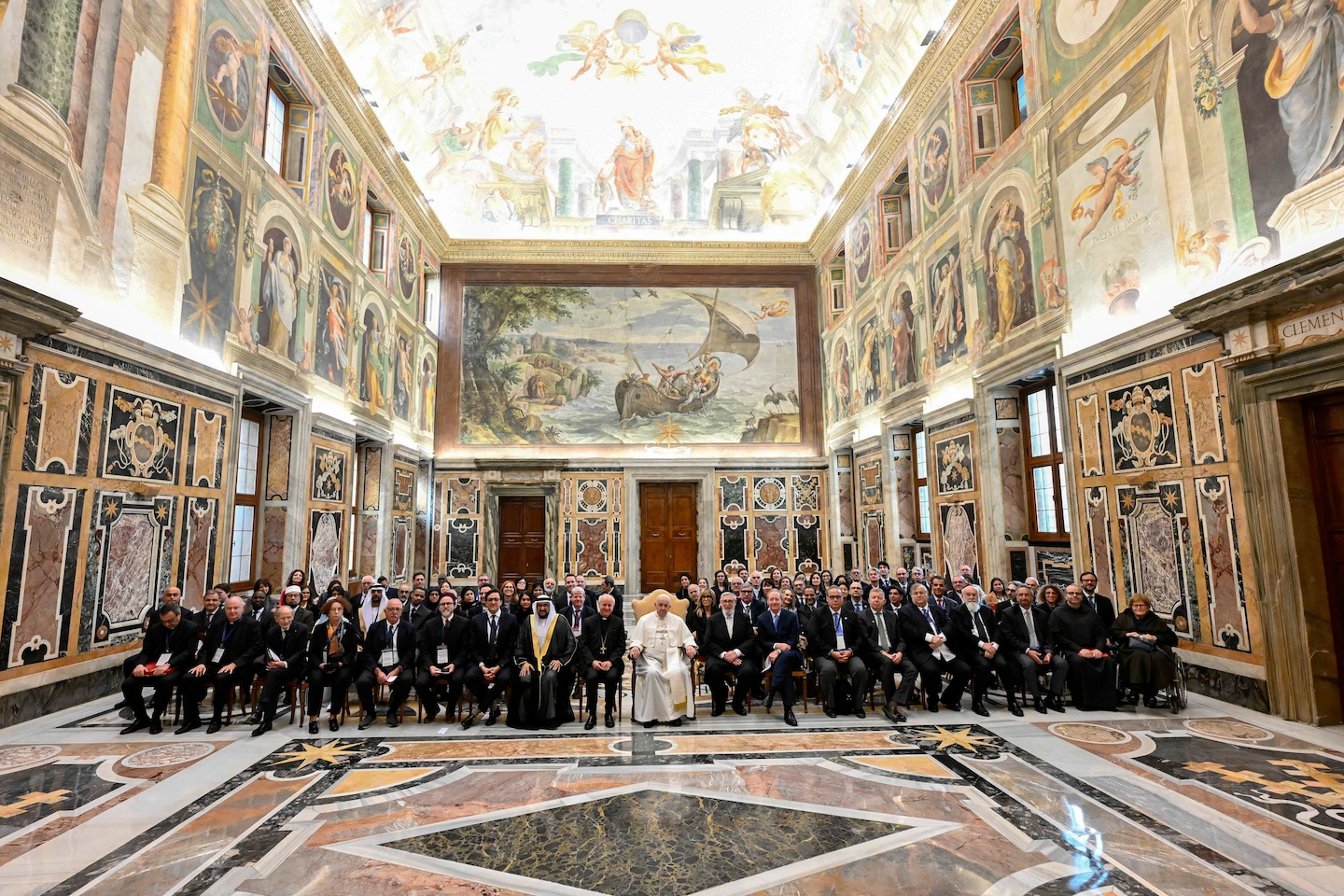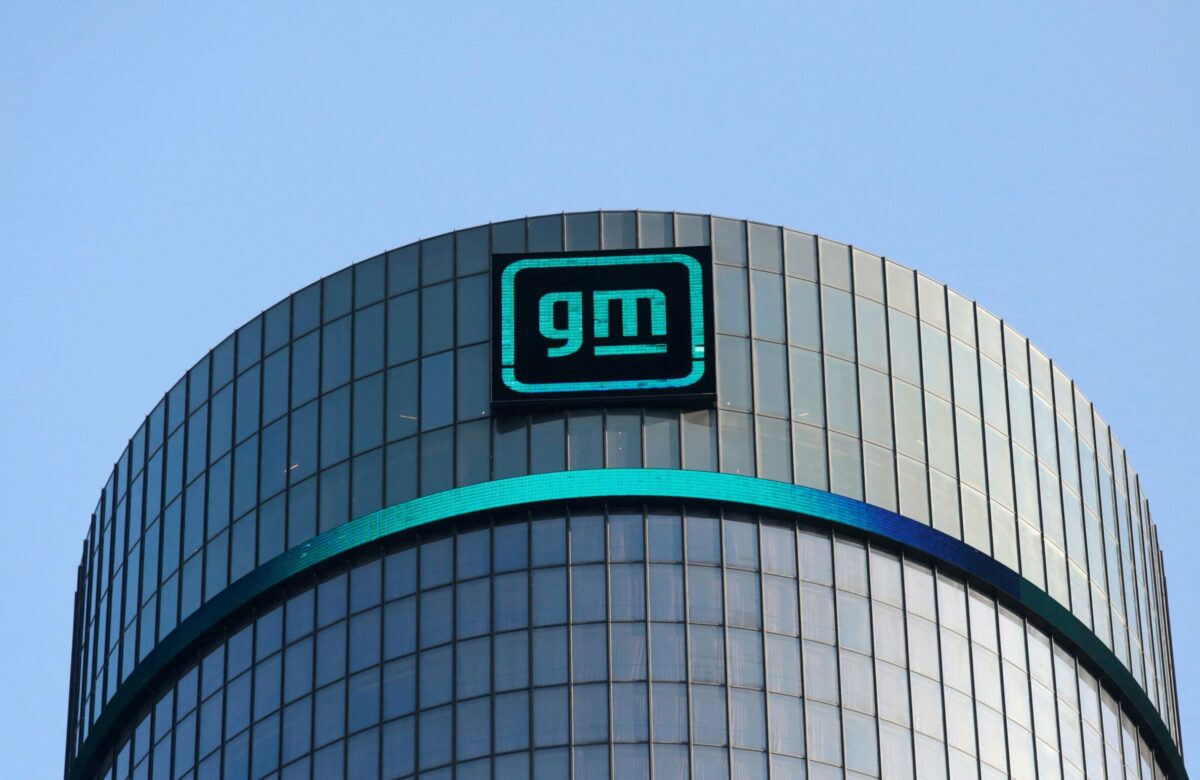
Pope Francis addresses G-7 in role of adviser on AI
- Science
- June 14, 2024
- No Comment
- 156
In the five years since that meeting, AI has become unavoidable — as the pope himself found out last year when viral images of him in a Balenciaga puffer jacket heralded a new era of deepfakes. And as the technology has expanded, the Vatican has positioned itself as the conscience of companies like Microsoft and emerged as a surprisingly influential voice in the debate over AI’s global governance.
Francis arrived in southern Italy on Friday to become the first pope to address a Group of Seven forum of world leaders, joining a session at the summit dedicated to AI.
“The presence of His Holiness will make a decisive contribution to defining a regulatory, ethical and cultural framework for artificial intelligence,” Italian Prime Minister Giorgia Meloni said in a statement announcing the invitation.
GET CAUGHT UP
Stories to keep you informed
In the same way the pope sought to elevate the urgency of climate change, Francis now is zooming in on AI — a technology he has said poses “a risk to our survival” and could “endanger our common home.”
His concerns center less on sci-fi movie predictions of malevolent machines, or how the possibility of sentient AI might challenge the fundamental definition of life. Rather, he has focused on the apocalyptic potential of weaponized AI. He fears the elimination of human empathy as algorithms begin to decide the outcome of everything from asylum applications to bank loans. He has heralded “the exciting opportunities” of the technology, but frets over its power to deepen inequality within and among nations. Those risks, he insists, must be managed through a global treaty to regulate AI.
“The unique human capacity for moral judgment and ethical decision-making is more than a complex collection of algorithms, and that capacity cannot be reduced to programming a machine, which, as ‘intelligent’ as it may be, remains a machine,” the pope said in December. “For this reason, it is imperative to ensure adequate, meaningful and consistent human oversight of weapon systems.”
On Friday, world leaders — with the Vatican’s support — are set to unveil a badge of honor of sorts: a new label for companies that agree to safely and ethically develop AI tools, according to a person familiar with the G-7 discussions, who spoke on the condition of anonymity to describe the plan in advance of its release. The label will amount to a “voluntary” commitment, backed up by a monitoring and reporting system.
The AI issue has provided an opening for a church diminished by its handling of clerical sex abuse to reassert moral authority. Microsoft and at least some other tech companies appear eager for the Catholic Church’s seal of approval, as the industry grapples with public-relations challenges of a technology that could automate jobs, amplify misinformation and create new cybersecurity risks.
The Rome Call for AI Ethics — a document that counted the Vatican, Microsoft and IBM among its original signatories in 2020 — is emerging as a gold standard of best AI practices. Representatives of Judaism and Islam signed on last year. Next month, several Eastern faiths will join, adding to a list that now includes hundreds of companies, universities and a U.N. agency in pursuit of global guidelines.
The Vatican has earned a seat at the Big Tech table. An ancient institution with a mixed track record on science — see the trial of Galileo — is now dispatching representatives to major tech events.
The Rev. Paolo Benanti — the Vatican’s leading AI expert, a Franciscan priest and a trained engineer credited with coining the term “algorethics” — last year secured a spot on the United Nations’ Advisory Body on Artificial Intelligence and has become a major player in the crafting of a national AI policy for Italy, a G-7 nation. At the Vatican’s request, IMB hosted a global summit of universities at Notre Dame to bring AI ethics to the forefront of curriculums.
The Vatican’s views have influenced concrete business decisions. Smith told The Post: “We developed our own technology that would allow anyone with just a few seconds of anyone’s voice to be able to replicate it. And we chose not to release that.” He added that the Rome Call “is definitely part of what has helped us at Microsoft strive to take a broad-minded approach to the development of AI, including within our own four walls. I just think it’s provided a broad humanistic and intellectual frame.”
The pledge’s emphasis on inclusion also influenced the company’s decision to launch a fellowship that brings together researchers and civil society leaders largely from the Global South to evaluate the impact of the technology, said Natasha Crampton, Microsoft’s chief responsible AI officer. Fellows have helped the company develop multilingual evaluations of AI models, and ensured that the company understands local context and cultural norms as it develops new products.
Not all companies are on board with the Rome principles. Some have forged ahead with AI-manipulated audio that researchers warn could be abused to dupe voters ahead of elections.
Not everyone has been allowed to join the Rome club, either. “Huawei asked,” said Archbishop Vincenzo Paglia, president of the Pontifical Academy for Life. “And we said no, because we don’t really know what the [people in charge there] think.”
In the meantime, the Vatican remains concerned about the misuse of open-source AI. The technology could produce major benefits in health care and education, Benanti said. “But it can also multiply a lot of bad elements in society, and we cannot spread AI everywhere without any political decision-making, because tomorrow we could wake up with a multiplier of inequality, of bioweapons,” he said.
Vatican officials have already sounded alarms over what they view as potentially unethical uses, including the facial recognition systems deployed in the 2019-2020 crackdown on protesters in Hong Kong, as well as algorithms for refugee processing such as in Germany, where AI-fueled linguistic tests have been used to establish whether asylum seekers are lying about their places of origin.
The relationship between the Vatican and AI innovators had its genesis in a 2018 speech that Benanti delivered on AI ethics. A senior Microsoft representative in Italy had been in the audience, and the two began meeting regularly. They brought in Paglia, who was interested in broadening the remit of his academy beyond core issues such as the ethics of stem cell research.
Ahead of Smith’s visit with the pope, Paglia escorted him through Michelangelo’s “Last Judgement” in the Sistine Chapel, and showed him renderings by Galileo of the Earth revolving around the sun — the theory that landed him under house arrest for life after a church trial.
Yet the Vatican’s relationship with science hasn’t always been as a Luddite. In the Middle Ages, Catholic scholars seeded Europe with what would become some of its greatest universities. And although targeted by some individual clerics, Darwin’s theory of evolution was never officially challenged by the Vatican.
The church officially declares that “faith and reason” are not in conflict.
“The Bible doesn’t tell us how heaven works, but how to get there,” said Paglia, quoting Galileo. The archbishop has made official trips to Microsoft’s headquarters near Seattle and IBM offices in New York.
Through aggressive AI investments, Microsoft has become the world’s most valuable company, worth more than $3 trillion. But its continued success hinges on curbing negative perceptions of AI. Worries that the tech could displace jobs, exacerbate inequalities, supercharge surveillance and usher in new kinds of warfare are prompting governments around the world to consider stringent regulations that could blunt the company’s ambitions.
The European Union is readying a landmark antitrust law that could limit more advanced generative AI models. The Federal Trade Commission is investigating a deal that Microsoft made with the AI start-up Inflection, probing whether the tech giant deliberately set up the investment to avoid a merger review. And U.S. enforcers reached a deal that will open the company to greater scrutiny of how it wields power to dominate artificial intelligence, including its multibillion-dollar investments in ChatGPT maker OpenAI. That relationship has also exposed Microsoft to new reputational risks, as OpenAI chief executive Sam Altman frequently invites controversy.
Under Smith’s leadership, Microsoft has built one of the most sophisticated global lobbying organizations to defuse its regulatory challenges and try to convince people that it is the tech titan the world can trust to build AI. Smith regularly meets with heads of state, including appearing last month alongside President Biden at a factory opening. To be an effective business, Microsoft has to find ways to work governments and to ensure its technology can transcend them, Smith said.
The “world’s oldest global organization” can be a unique teacher and partner in that effort, he said. Catholicism and other religions aren’t bound by national borders — much like the applications Microsoft is peddling globally.
“At one level, you might look at the two of us and think we’re odd bedfellows,” Smith said. “But on the other hand, it’s a perfect combination.”
Zakrzewski reported from Washington.
#Pope #Francis #addresses #role #adviser









